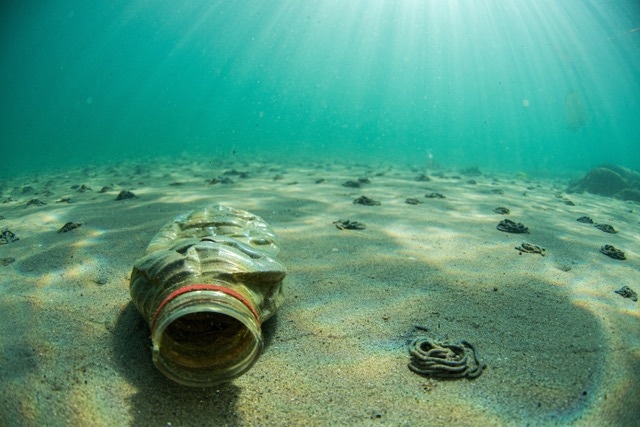Oceana urges leading beverage and bottling companies to grow reusable packaging, reduce marine plastic pollution and help save the oceans.

Image Credit: © Oceana/ Juan Cuetos
A new report released on 14 November highlights the urgent need for reusable beverage packaging as a solution to the global plastic crisis. The report, produced by ocean advocacy group Oceana, shows that just a 10 percentage-point increase in reusable beverage packaging by 2030 could eliminate over 1 trillion single-use plastic bottles and cups and prevent up to 153 billion of these containers from entering our world’s oceans and waterways. Stacked on top of each other, the avoided 1 trillion bottles and cups could reach to the moon and back over 300 times.
Global beverage leaders, including The Coca-Cola Company and PepsiCo, have enormous existing reusable systems in place around the world and have pledged to increase the volume of beverages they sell in reusable packaging by 10-percentage points or more by 2030. Oceana notes that these companies must meet these pledges and that the entire sector needs to fully commit to reuse over single-use to address the plastic pollution crisis facing our seas. Reusable packaging is a proven circular solution that can dramatically and quickly reduce the amount of plastic bottles and cups that are produced and that will reach the oceans. Other ideas more heavily promoted by beverage companies – such as adding more recycled content to plastic bottles are not, by design, geared toward reducing single-use plastic containers, and therefore cannot match the impact of reuse.
“We’ve spent too much time chasing circular fantasies while huge amounts of plastic continue to flood into our oceans,” said Matt Littlejohn, Oceana’s Senior Vice President for Strategic Initiatives. “We’ve estimated that a stack of the single-use plastic packaging used by the beverage sector in 2022 alone could reach all the way to the sun and back. Adding recycled content to bottles and cups won’t topple this single-use plastic tower. The way to really make a difference is to replace single-use plastic with reusable packaging. We need companies and governments to stop betting on the wrong horse with recycling and to prioritize the expansion and re-establishment of reusable packaging systems instead. By switching to this real circular solution, we can drastically reduce the amount of plastic waste that ends up in our oceans, in the bellies of whales and turtles, and washed up on our beaches”.
The report reveals the significant presence of large-scale reusable packaging systems around the world – including in the Philippines where 40% of the volume of all packaged non-alcoholic beverages sold are in reusable bottles. In addition, the report highlights several promising large-scale reusable cup systems currently available in the United States and Europe, including TURN, r.World and Re-uz. These systems have already been adopted by major companies and organizations such as Live Nation, which recently announced it is shifting to the TURN reusable cup system at major concerts and venues to reduce its environmental impact. French provider Re-uz will be the delivery partner of the 2024 Olympic and Paralympic Games, supporting its pledge to cut the single-use plastic footprint of the Paris Games in half compared to the London 2012 Games.
“Companies have a responsibility to increase reusable packaging in place of single-use packaging”, added Dr. Dana Miller, Oceana’s Director of Strategic Initiatives. “Our seas can’t wait. We need real proven solutions, like reuse, that can reduce single-use plastic and marine plastic pollution at scale right now.”